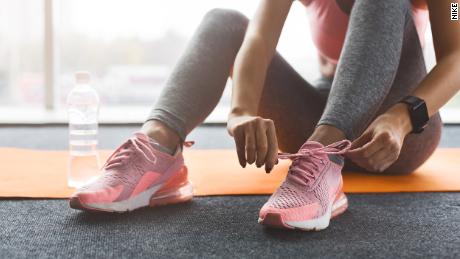Wags, played by esteemed actor David Costabile, survives. “I’m not going to go out like Mr. Big,” he declares in typical cynical style in this season’s opening episode.
The negative publicity caused by the fictional incidents may leave some wondering: Is it safe for your heart to work hard?
“The message should be that regular exercise is a wonderful way to stay fit and healthy and to reduce cardiovascular disease. In fact, I call exercise the ‘fountain of youth,'” said cardiologist Dr. Andrew Freeman, founding co-chairman of the Nutrition and Lifestyle Task Force of the American College of Cardiology.
“But I tell people it’s always a good idea to see your primary care doctor or your cardiologist before starting any ambitious exercise program, including Peloton, which I would say is pretty ambitious,” Freeman said.
Was Mr. Big, played by actor Chris Noth, checked out by his doctor before he put the pedal to the metal? If he did, that may have altered the outcome of his cardiac event, but then it could be argued that if Carrie, played by Sarah Jessica Parker, had called 911 instead of holding him as he died, that might have changed too. his fate.
As for Wags? Anyone who parties that hard is a prime candidate for a cardiac event, on a Peloton bike or off, said Freeman, who is also director of cardiovascular prevention and wellness at National Jewish Health in Denver.
“You take someone who uses all kinds of substances and lives a very stressed life, probably not exercising regularly or eating well, sometimes bad things happen,” Freeman said.
“Yes, there may be a small chance of a heart attack or something bad happening during any kind of intense exertion, but I’d say there’s a significant risk in not exercising,” he added.
Singing the praises of exercise
Study after study proves it: exercise improves your health in ways few other things can. “Only a few lifestyle choices have as big an impact on your health as physical activity,” says the nation’s leading health organization, the US Centers for Disease Control and Prevention.
Some benefits are immediate. After finishing just one 30-minute physical activity, you’ll have less anxiety, lower blood pressure and more insulin sensitivity, and you’ll sleep better that night, the CDC states.
That positive impact increases if you complete the 150 to 300 minutes a week of moderate-intensity exercise recommended for adults. That includes moves like brisk walking, dancing, doubles tennis, water aerobics and, yes, riding a bike.
Within a few months, the CDC says, you’ll see an improvement in your blood pressure and heart and lung functions, as well as a reduced risk of depression, anxiety, type 2 diabetes, and bladder, breast, colon, kidney, lung. and stomach cancers. There are additional benefits, too: reduced stress, better sleep, and a stronger sex life.
Intense exercise is not for beginners
Exercise is not without risks. As every beginner knows, too much effort too soon can derail any training program, especially if the muscles aren’t warmed up and stretched well beforehand. Experts suggest that it develop slowly, preferably after a medical review.
“Usually, if you haven’t been exercising, we’ll do a stress test, a supervised graded exercise test to make sure you don’t have a heart attack while you’re exercising,” Freeman said.
“Exercise is very safe. It’s very effective,” he added. “But do it safely. If you haven’t been exercising and then you’re going to run marathons or do Peloton or whatever, check with your doctor first.”
.


